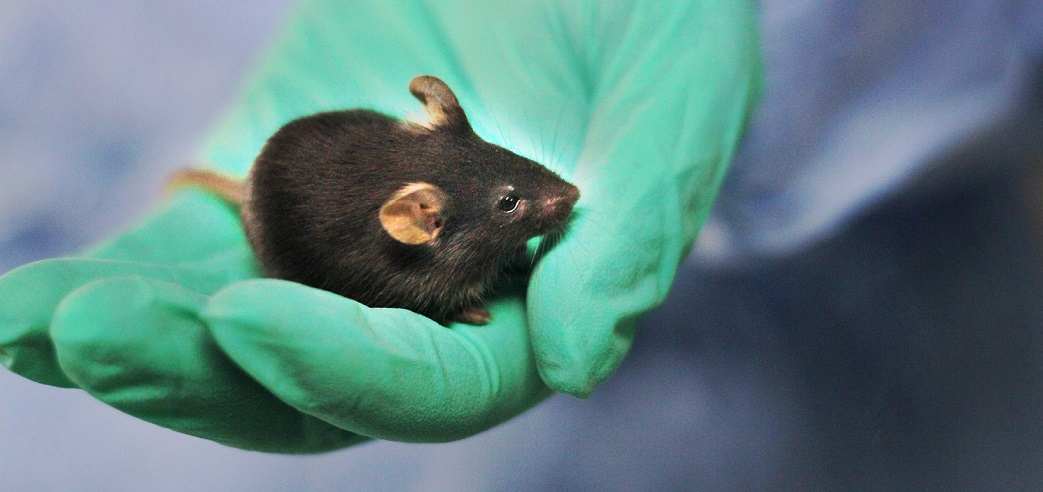

Humanized mice models carry a short strand of human DNA, cells, or tissues so that in-vivo studies of human systems can be carried out without putting people at risk. Due to this, there is a high demand across preclinical and clinical research for humanized animal models that may improve the safety and efficacy of drug development.

A PDX humanized mouse is engrafted with a human tumor, which we call a patient-derived xenograft (PDX). The PDX models can be used to guide customized patient care and can also be used to conduct pre-clinical trials for new cancer drugs. Scientists can take a part of a tumor, cut it into small pieces and introduce that to different mice. Dozens of such mice can be created and used to check different drug combinations, allowing us to determine the best way to eliminate a specific tumor type.
PDX models of mice are useful in pre-clinical trials of chemotherapeutic drugs. But in immunotherapy,an intact immune system is needed. Therefore, in those situations, if we use a mouse with a murine immune system,it doesn't replicate the human immune system accurately.So,for immunotherapeutic drug testing, humanized mouse models are used.
Mice with a humanized immune system are created by injecting human stem cells derived from fetal tissues or cord blood into mice with little or no mouse immune system. These cells will then create human T cells, B cells, and other immune cells in the mouse. It will enable scientists to learn how our immune system responds to diseases such as cancer and COVID-19. These mice are also useful in evaluating how different pharmaceuticals act against different types of cancer.
Another type of humanized mice involves innate immune reconstitution, and are prepared by implanting human thymus or liver tissue or injecting human stem cells to repopulate the bone marrow of a severely immune-compromised mouse. This is done after removing mouse bone marrow cells by radiation. These humanized mouse models provide enhanced predictive ability on different drugs regarding how the human cells respond.
Lastly, genetically humanized mice carry human gene(s) that have been inserted into the mouse genome.The inserted human gene may then be evaluated as a druggable target for in vivo studies,which is especially helpful for immunotherapy research involving checkpoint inhibitors. Genetically engineered mouse models may also be used in conjuction with humanized immune system mice, even supporting their improvement. Genetic humanization models are typically suitable for studies targeting specific genes, so they are less widely applicable.
The new drug development process consists of target discovery, target validation, lead generation and refinement, and pre-clinical development.
The first step is target discovery. In this step, genes are modulated to affect the clinical outcome, and manifestations of a specific disease are identified. Recently, humanized mice have been used in genetic screening experiments to identify physiological and pathological pathways. When using humanized mouse models, it is possible to validate the results in well-established genetic disease models directly.
The main goal in target validation is to know whether deletion of a certain gene or modulating a certain gene will prevent the tumor pathology.
After a gene is validated as a target for drug development, molecules are selected which can interfere with its function. Once molecules are selected, in-vivo experiments are carried out using humanized mouse models,an efficient and cost-effective solution for those situations.
In pre-clinical testing of drug molecules, drugs should be tested for their safety and efficacy. As drugs developed to interact with human proteins do not comparably interact with mouse proteins, humanized mice have been proved immensely useful in pre-clinical testing.
Humanized mice expressing human antibodies can be produced by gene targeting—replacing a mouse region with a human antibody variable region. They are useful in the field of immunotherapeutic drug production.
Various recent studies have shown the advantages and potential advancements in immunotherapy using humanized mice. For example, in a recent study, a renal cell carcinoma (RCC) humanized mouse model was used to assess the antibody efficacy in targeting a specific protein (carbonic anhydrate IX) in RCC. Another study collected T cells for humanized mice and found that those T cells have a cytotoxic activity to melanoma cells in vitro.
If you are wondering how you can get hold of custom-made animal models, you should consider Cyagen, the leader in generating custom animal models for pharmaceutical industries and research institutions. Our cutting-edge mouse model generation technologies enable us to offer a broad portfolio of custom genetically engineered models, including conditional humanized mice models, one of our main custom models. With Cyagen’s unique genotype guarantee, you can rest assured and be ready to go with your experiments.




영업일 기준 1-2일 내에 답변해 드리겠습니다.